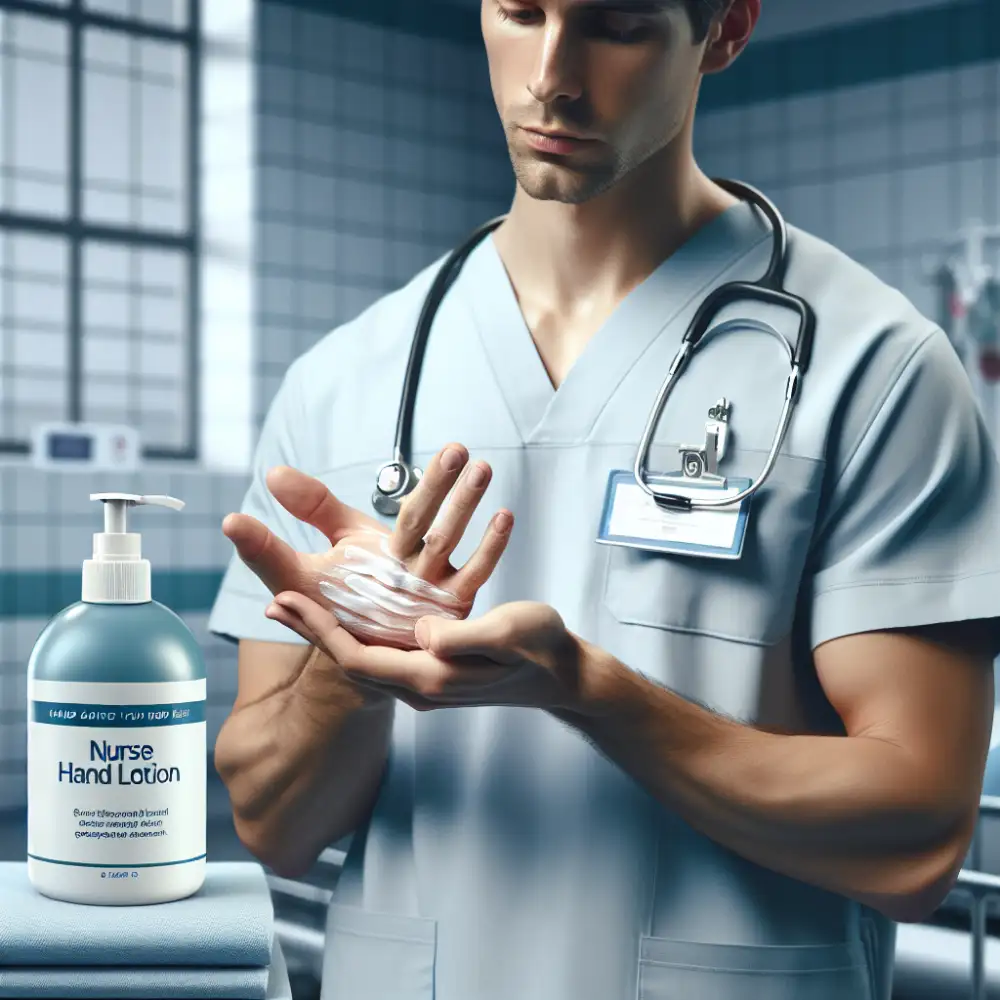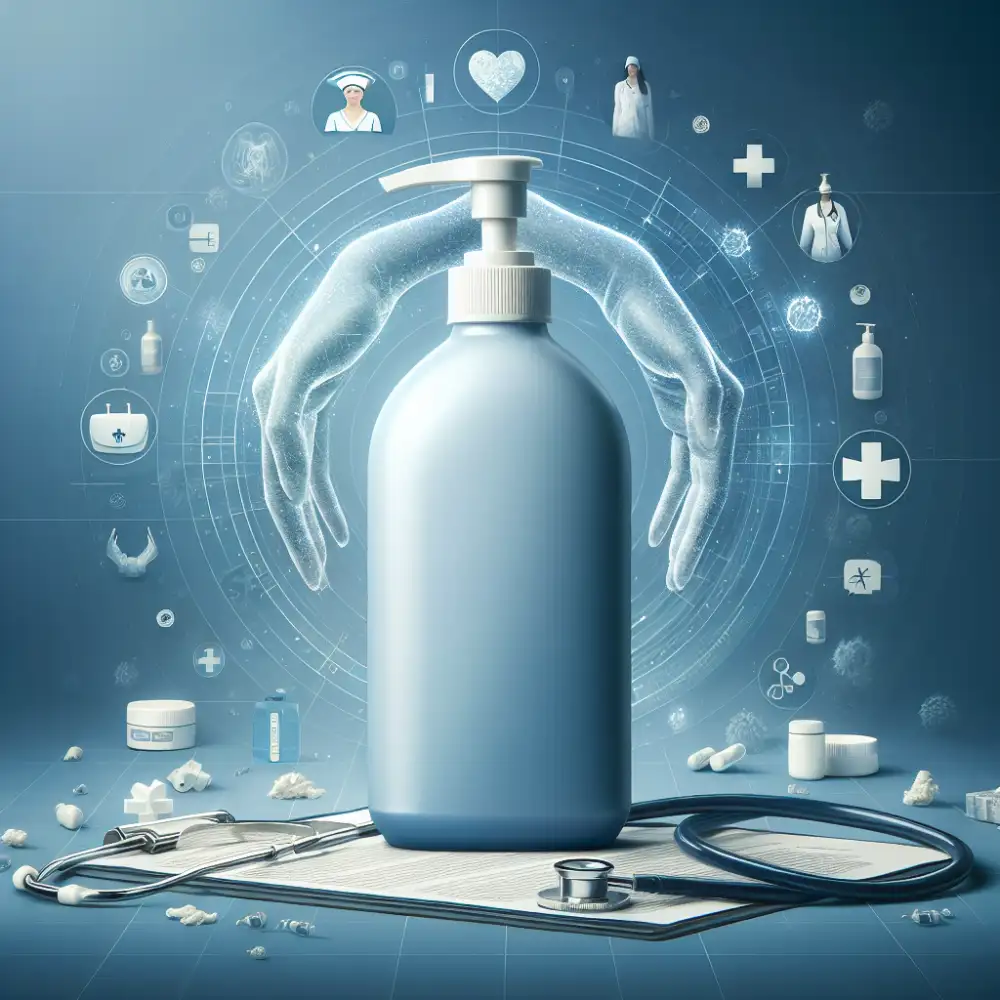Nurse Hand Lotion: Your New Secret Weapon Against Dryness

Common Nurse Hand Issues
Nurses frequently experience hand issues due to the demanding nature of their work. Carpal tunnel syndrome, a condition affecting the median nerve in the wrist, is prevalent among nurses, causing numbness, tingling, and pain in the hand and fingers. Trigger finger, another common ailment, occurs when a finger tendon becomes inflamed, leading to clicking, catching, or locking of the finger. Nurses are also susceptible to hand dermatitis, an inflammatory skin condition triggered by frequent handwashing and exposure to irritants like gloves and cleaning agents. Symptoms include dryness, itching, redness, and cracking of the skin.
Ingredients to Soothe Nurse Hands
Nurses' hands endure a lot – constant washing, sanitizing, and exposure to harsh chemicals. Look for hand creams with these ingredients to combat dryness and irritation:
Colloidal Oatmeal: A natural anti-inflammatory that soothes itching and irritation.
Shea Butter: Deeply moisturizing and helps repair the skin's natural barrier.
Hyaluronic Acid: Attracts and retains moisture, keeping hands hydrated.
Ceramides: Help strengthen the skin's protective barrier and prevent moisture loss.
Glycerin: A humectant that draws moisture to the skin.
Avoid products with added fragrances or dyes, as these can further irritate sensitive skin. Regularly applying a hand cream with these ingredients can help keep your hands healthy and hydrated.
Nurse hand lotion, a balm for the hands that heal, a shield against the elements of care.
Blair Davenport
Avoiding Harsh Chemicals
Many conventional cleaning products contain harsh chemicals that can be harmful to our health and the environment. Prolonged exposure to these chemicals can irritate our skin, eyes, and respiratory system. They can also contribute to indoor air pollution and release volatile organic compounds (VOCs) into the air we breathe.
Fortunately, there are many natural and effective alternatives available. Baking soda, for instance, is a versatile cleaning agent that can deodorize, scrub, and cut through grease. Vinegar is another excellent natural cleaner that can disinfect surfaces and remove mineral deposits.
By opting for natural cleaning solutions and reducing our reliance on harsh chemicals, we can create a healthier and safer home for ourselves and our loved ones.
Importance of Frequent Application
Frequent application is key to maximizing effectiveness, whether you're talking about sunscreen or moisturizer. Think of it like painting a wall: one thin coat won't cut it. You need multiple layers for full coverage and lasting protection. The same principle applies to skincare.

Regular application ensures that your skin receives a consistent level of active ingredients, boosting their efficacy. Plus, factors like sweat, rubbing, and environmental exposure can gradually diminish the product's effectiveness over time. Don't wait for your skin to feel dry or unprotected before reapplying. Stay ahead of the game and keep your skin happy by making frequent application a habit.
Protecting Skin Barrier Function
Your skin's barrier is its first line of defense against the environment. It helps to keep moisture in and irritants, pollutants, and bacteria out. When your skin barrier is damaged, your skin can become dry, irritated, and more susceptible to inflammation and infection. To protect your skin barrier, use a gentle cleanser, moisturize regularly, and avoid harsh soaps and detergents. Look for products that are fragrance-free and hypoallergenic. Protect your skin from the sun by wearing sunscreen with an SPF of 30 or higher every day. If you have any concerns about your skin, see a dermatologist.
Choosing the Right Lotion Type
Navigating the world of lotions can feel overwhelming. First, consider your skin type. For dry skin, look for richer creams and butters containing hydrating ingredients like hyaluronic acid and shea butter. Oily and acne-prone skin benefit from lightweight, oil-free lotions, often labeled as "non-comedogenic," meaning they won't clog pores. Sensitive skin types should opt for fragrance-free and hypoallergenic formulas, avoiding potential irritants. Consider the lotion's purpose. If it's for everyday use, a lightweight lotion with SPF protection is ideal. For intense hydration, body butter or a thicker cream is more effective.
Dermatologist Recommendations
Dermatologists are experts in skin health and can offer personalized advice to address specific concerns. They emphasize the importance of daily sun protection using broad-spectrum sunscreen with an SPF of 30 or higher. Regular skin checks, performed by a dermatologist or self-conducted at home, are crucial for detecting any abnormalities early on. Dermatologists also recommend gentle cleansing, avoiding harsh soaps that can strip the skin of its natural oils. Maintaining adequate hydration by drinking plenty of water and using a moisturizer suitable for your skin type is essential. Remember to consult with a board-certified dermatologist for any persistent or concerning skin issues.
Hand Care Beyond Lotion
While lotion is a great first step, truly pampering your hands goes beyond basic moisturizing. Exfoliate regularly with a gentle scrub to slough away dead skin cells, revealing smoother, brighter skin. Protect your hands from harsh soaps and hot water by wearing gloves when doing dishes or cleaning. Consider a weekly hand mask treatment to deliver an extra boost of hydration and nourishment. Don't forget your nails! Regular trims, cuticle care, and the occasional strengthening treatment can work wonders for overall hand health.

Published: 14. 06. 2024
Category: Health



